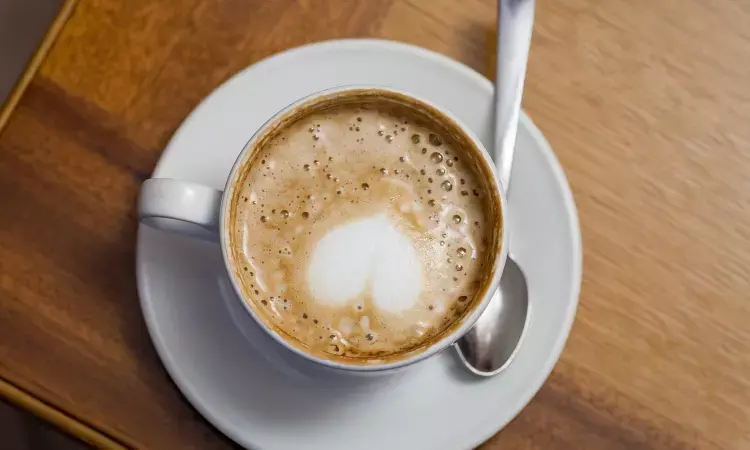- Home
- Medical news & Guidelines
- Anesthesiology
- Cardiology and CTVS
- Critical Care
- Dentistry
- Dermatology
- Diabetes and Endocrinology
- ENT
- Gastroenterology
- Medicine
- Nephrology
- Neurology
- Obstretics-Gynaecology
- Oncology
- Ophthalmology
- Orthopaedics
- Pediatrics-Neonatology
- Psychiatry
- Pulmonology
- Radiology
- Surgery
- Urology
- Laboratory Medicine
- Diet
- Nursing
- Paramedical
- Physiotherapy
- Health news
- Fact Check
- Bone Health Fact Check
- Brain Health Fact Check
- Cancer Related Fact Check
- Child Care Fact Check
- Dental and oral health fact check
- Diabetes and metabolic health fact check
- Diet and Nutrition Fact Check
- Eye and ENT Care Fact Check
- Fitness fact check
- Gut health fact check
- Heart health fact check
- Kidney health fact check
- Medical education fact check
- Men's health fact check
- Respiratory fact check
- Skin and hair care fact check
- Vaccine and Immunization fact check
- Women's health fact check
- AYUSH
- State News
- Andaman and Nicobar Islands
- Andhra Pradesh
- Arunachal Pradesh
- Assam
- Bihar
- Chandigarh
- Chattisgarh
- Dadra and Nagar Haveli
- Daman and Diu
- Delhi
- Goa
- Gujarat
- Haryana
- Himachal Pradesh
- Jammu & Kashmir
- Jharkhand
- Karnataka
- Kerala
- Ladakh
- Lakshadweep
- Madhya Pradesh
- Maharashtra
- Manipur
- Meghalaya
- Mizoram
- Nagaland
- Odisha
- Puducherry
- Punjab
- Rajasthan
- Sikkim
- Tamil Nadu
- Telangana
- Tripura
- Uttar Pradesh
- Uttrakhand
- West Bengal
- Medical Education
- Industry
Drinking two to three cups of coffee per day may increase longevity

Sophia-Antipolis: Drinking two to three cups of coffee, be it ground, instant, or decaffeinated, lowers the risk of cardiovascular diseases and is linked with a longer lifespan, researchers state in a study published in the European Journal of Preventive Cardiology.
"In this large, observational study, ground, instant, and decaffeinated coffee were associated with equivalent reductions in the incidence of cardiovascular disease and death from cardiovascular disease or any cause," said study author Professor Peter Kistler of the Baker Heart and Diabetes Research Institute, Melbourne, Australia. "The results suggest that mild to moderate intake of ground, instant, and decaffeinated coffee should be considered part of a healthy lifestyle."
There is little information on the impact of different coffee preparations on heart health and survival. This study examined the associations between types of coffee and incident arrhythmias, cardiovascular disease, and death using data from the UK Biobank, which recruited adults between 40 and 69 years of age. Cardiovascular disease was comprised of coronary heart disease, congestive heart failure, and ischaemic stroke.
The study included 449,563 participants free of arrhythmias or other cardiovascular diseases at baseline. The median age was 58 years and 55.3% were women. Participants completed a questionnaire asking how many cups of coffee they drank each day and whether they usually drank instant, ground (such as cappuccino or filtered coffee), or decaffeinated coffee. They were then grouped into six daily intake categories, consisting of none, less than one, one, two to three, four to five, and more than five cups per day. The usual coffee type was instant in 198,062 (44.1%) participants, ground in 82,575 (18.4%), and decaffeinated in 68,416 (15.2%). There were 100,510 (22.4%) non-coffee drinkers who served as the comparator group.
Coffee drinkers were compared to non-drinkers for the incidence of arrhythmias, cardiovascular disease and death, after adjusting for age, sex, ethnicity, obesity, high blood pressure, diabetes, obstructive sleep apnoea, smoking status, and tea and alcohol consumption. Outcome information was obtained from medical records and death records. The median follow up was 12.5 years.
A total of 27,809 (6.2%) participants died during follow-up. All types of coffee were linked with a reduction in death from any cause. The greatest risk reduction seen with two to three cups per day, which compared to no coffee drinking was associated with a 14%, 27%, and 11% lower likelihood of death for decaffeinated, ground, and instant preparations, respectively.
Cardiovascular disease was diagnosed in 43,173 (9.6%) participants during follow-up. All coffee subtypes were associated with a reduction in incident cardiovascular disease. Again, the lowest risk was observed with two to three cups a day, which compared to abstinence from coffee was associated with a 6%, 20%, and 9% reduced likelihood of cardiovascular disease for decaffeinated, ground, and instant coffee, respectively.
An arrhythmia was diagnosed in 30,100 (6.7%) participants during follow-up. Ground and instant coffee, but not decaffeinated, was associated with a reduction in arrhythmias including atrial fibrillation. Compared with non-drinkers, the lowest risks were observed with four to five cups a day for ground coffee and two to three cups a day for instant coffee, with 17% and 12% reduced risks, respectively.
Professor Kistler said: "Caffeine is the most well-known constituent in coffee, but the beverage contains more than 100 biologically active components. It is likely that the non-caffeinated compounds were responsible for the positive relationships observed between coffee drinking, cardiovascular disease, and survival. Our findings indicate that drinking modest amounts of coffee of all types should not be discouraged but can be enjoyed as a heart-healthy behavior."
References: 1Chieng D, Canovas R, Segan L, et al. The impact of coffee subtypes on incident cardiovascular disease, arrhythmias, and mortality: long-term outcomes from the UK Biobank. Eur J Prev Cardiol. 2022. doi:10.1093/eurjpc/zwac189.
Dr Kamal Kant Kohli-MBBS, DTCD- a chest specialist with more than 30 years of practice and a flair for writing clinical articles, Dr Kamal Kant Kohli joined Medical Dialogues as a Chief Editor of Medical News. Besides writing articles, as an editor, he proofreads and verifies all the medical content published on Medical Dialogues including those coming from journals, studies,medical conferences,guidelines etc. Email: drkohli@medicaldialogues.in. Contact no. 011-43720751


